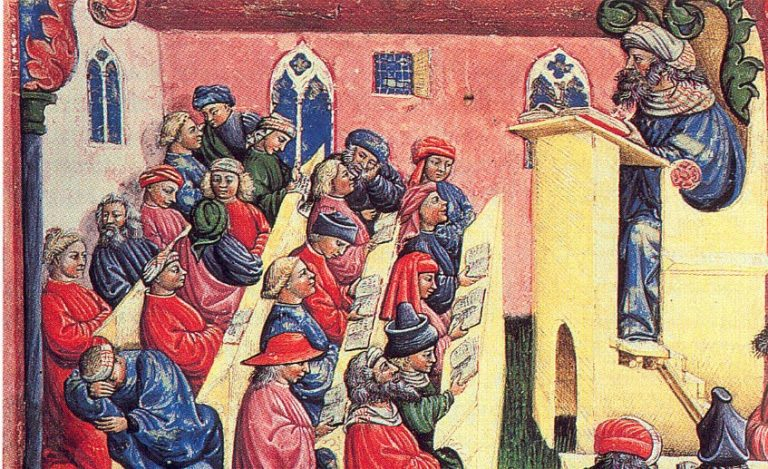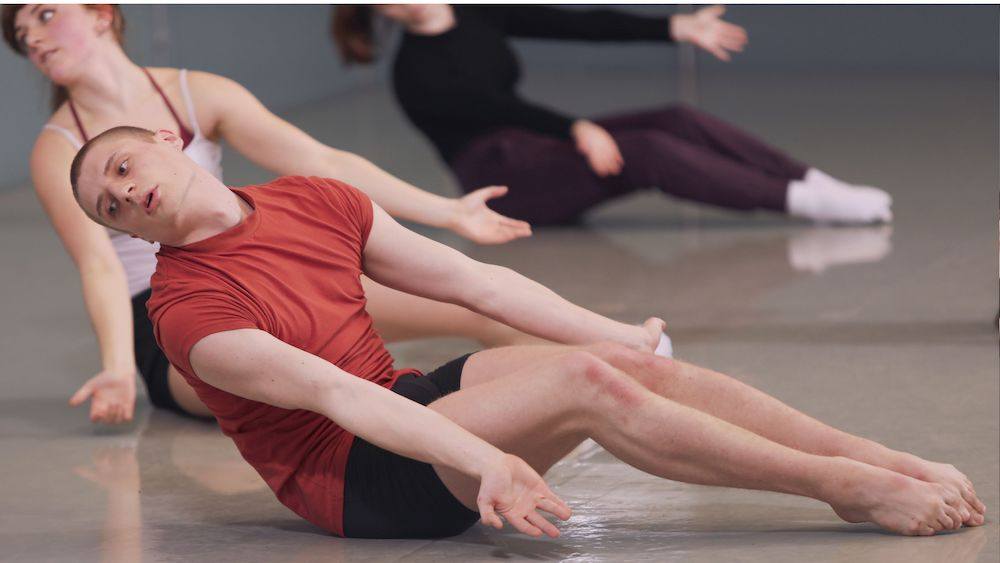The Medieval Studies Conference, a hallmark event for scholars dedicated to medieval research, convened this year at Harvard University, celebrating a century of academic inquiry and interdisciplinary dialogue. Attracting over 800 academics from around the globe, this vibrant gathering served as a platform for enriching academic discussions, covering diverse topics from Chaucer’s influence to the complexities of medieval trade agreements. With the support of esteemed institutions like the Harvard Medieval Academy, participants explored the evolution of medieval studies and its relevance in today’s global context. The conference embraced innovative ideas and fostered collaborations that underscored the significance of the medieval period across various cultures. As the community of medievalists reflects on past achievements, the conference also promises a future filled with fresh perspectives in this dynamic field of study.
The gathering of scholars at the Medieval Studies Conference emphasized the significance of historical scholarship and its pluralistic tendencies in the broader context of medieval studies. Participants engaged in scholarly examinations that spanned not only literary analysis, typified by discussions around figures like Chaucer, but also encompassed economic and cultural interactions within various medieval societies. This convergence of global medieval studies offered a rich tapestry of research insights, fostering a collaborative environment where ideas thrived and diversified. Events such as workshops on pedagogy encouraged a broader interpretation of the medieval era, prompting academic discourse that embraced a more inclusive and worldwide perspective. Ultimately, the conference showcased the interdisciplinary nature of the field, revealing the complexities and myriad interpretations that continue to shape our understanding of the medieval past.
The Significance of the Medieval Studies Conference
The Medieval Studies Conference, celebrating its 100th annual meeting, stands out as a significant gathering for scholars worldwide, allowing academics to delve into medieval research through presentations and workshops. This year’s event attracted over 800 attendees from 23 different countries, reflecting the global interest in the complexities of medieval studies. The conference serves not only as a platform to showcase ongoing research but also as a catalyst for academic discussions that bridge various disciplines, from literature to history, and even pedagogy.
With a rich history dating back to its establishment in the early 1920s at the Harvard Medieval Academy, the conference embodies a vibrant community dedicated to expanding the understanding of medieval cultures across multiple continents. Important figures in academia gather to present their findings and explore interconnected themes, such as Chaucer’s influence on contemporary literature and the evolution of historical narratives.
Interdisciplinary Approaches in Medieval Research
One of the most exciting developments highlighted at the Medieval Studies Conference is the growing interdisciplinary nature of medieval research. Scholars like Fernanda García-Oteyza illustrate how medieval texts resonate in modern contexts, drawing parallels between Chaucer’s exploration of rumor and contemporary literature’s engagement with digital realities. This intersection invites attendees to consider how various fields can inform our understanding of medieval literature and its implications for today’s societal challenges.
Moreover, the variety of themes discussed, such as medieval trade agreements and cultural exchanges, showcases how interconnected societies were during this era, and challenges the traditional, Eurocentric perspectives that have historically dominated the field. By emphasizing the importance of collaboration among diverse academic disciplines, the conference encourages new insights into global medieval studies, expanding the scope and relevance of scholarly inquiry.
Challenging Historical Narratives
At the heart of many presentations was a challenge to established historical narratives within medieval studies. For example, Elena Shadrina’s research on Venetian trade agreements offers a fresh look at medieval commerce and social contracts that underscores the sophistication of medieval economies. Such studies highlight that the medieval period was rich with complexity and innovation, countering simplified narratives that often portray it as a stagnant era.
Furthermore, scholars like Colin Brady probe into cultural traditions from Ireland’s past, showcasing events like the Óenach Tailteann as vital to understanding medieval governance and community. These discussions contribute to the broader goal of re-evaluating our understanding of the medieval period and recognizing the diverse contributions of various regions and cultures.
Enhancing Global Perspectives in Medieval Studies
The 100th annual meeting of the Medieval Academy emphasizes the significance of global perspectives in medieval studies. With presentations discussing the medieval worlds across the Mediterranean, Africa, and East Asia, the conference illustrates the field’s enriched tapestry through diverse cultural lenses. Assistant Professor Anna Wilson’s pedagogy workshop championed this global approach, encouraging participants to engage with medieval narratives that transcend borders.
Such a broad exploration fosters a more inclusive understanding of medieval studies, prompting scholars to rethink conventional boundaries and embrace a multiplicity of voices and experiences. This vital shift not only enhances academic discussions but also enriches the instructional methods used to teach medieval subjects, allowing for a deeper appreciation of the interconnectedness of global histories.
Medieval Voices in Contemporary Literature
One of the striking themes throughout the Medieval Studies Conference was the ongoing relevance of medieval literature in addressing contemporary issues. Fernanda García-Oteyza deftly connected Chaucer’s concerns over the authenticity of narrative to today’s discussions around misinformation and digital culture. This exploration of continuity between past and present highlights how medieval texts can serve as critical lenses for understanding modern dilemmas.
Additionally, Emily Sun’s analysis of Meghan Purvis’ translation of “Beowulf” demonstrates how modern scholars navigate cultural distances while interpreting ancient texts. By presenting medieval literature through contemporary perspectives, scholars are able to make these works more accessible and relevant to today’s audiences, thereby spurring renewed interest in the medieval canon.
Networking and Collaboration Opportunities
Conferences like the Medieval Studies Conference also facilitate networking and collaboration among scholars. For many attendees, including graduate students and early-career researchers, these events provide invaluable opportunities to connect with experienced academics, share research insights, and engage in thought-provoking discussions. By enabling such interactions, the conference plays a pivotal role in fostering a vibrant intellectual community.
The importance of face-to-face dialogue post-COVID-19 lockdowns was echoed by attendees who expressed a revitalized appreciation for in-person gatherings. These interactions not only enrich individual scholarship but also contribute to the collective advancement of the field by encouraging collaborative projects, interdisciplinary research, and a shared passion for medieval studies.
Reflections on the Past and Future of Medieval Studies
As Sean Gilsdorf noted during the conference, the centennial gathering offers a unique opportunity to reflect on the past century of medieval studies while also anticipating future developments in scholarship. This moment of introspection encourages scholars to consider the evolution of methodologies and frameworks that have shaped the field, as well as to anticipate emerging trends that will guide research in the coming years.
By addressing both historical advancements and future directions, the conference invites participants to engage in meaningful dialogue about their visions for the discipline. This forward-thinking approach not only honors the legacy of the Medieval Academy but also inspires a new generation of medievalists to continue exploring the rich tapestry of this historical period.
Engaging the Public with Medieval Scholarship
The Medieval Studies Conference also underscores the importance of engaging the public with medieval scholarship. As medievalists strive to make their research accessible beyond academic circles, initiatives such as outreach programs and public lectures play a crucial role in fostering a broader appreciation for the medieval period. These efforts aim to demystify the field, highlighting its relevance to contemporary society.
Engaging with the public not only helps in disseminating knowledge but also strengthens the connection between academia and community. Through collaborations with museums, schools, and cultural organizations, medievalists are finding innovative ways to present their research in interactive formats, making the rich histories of medieval societies more tangible and relatable for diverse audiences.
Innovative Research in Medieval Studies
The presentations at the Medieval Studies Conference illustrated a wealth of innovative research pushing the boundaries of traditional medieval studies. Scholars presented research that utilizes interdisciplinary methods, incorporating insights from archaeology, digital humanities, and sociology to deepen our understanding of medieval life. This dynamic approach not only enhances scholarly conversations but also invites fresh inquiries into established narratives.
Moreover, the incorporation of digital tools and technologies is transforming how researchers analyze and present their findings. From digital mapping of trade routes to interactive timelines of historical events, these innovations provide new avenues for engaging with medieval sources, enriching the understanding of historical context and cultural intersections.
Frequently Asked Questions
What is the purpose of the Medieval Studies Conference at Harvard?
The Medieval Studies Conference held by the Medieval Academy of America serves to bring together scholars and academics to discuss interdisciplinary developments in medieval research. It is an essential gathering that highlights evolving themes in global medieval studies and fosters important academic discussions on topics like Geoffrey Chaucer’s influence and medieval trade.
Who can attend the Medieval Studies Conference?
The Medieval Studies Conference welcomes anyone with an interest in medieval studies, including academics, graduate students, and enthusiasts. This year’s conference attracted over 800 participants from 23 countries, emphasizing its importance in the field of medieval research and global scholarly discussions.
What topics are typically covered at the Medieval Studies Conference?
Topics at the Medieval Studies Conference span a wide array of medieval studies subjects, including literature, history, trade, and the global impact of medieval cultures. For instance, this year’s discussions included medieval Venetian trade agreements, Chaucer’s influence in literature, and global perspectives on the Middle Ages.
How has the Medieval Studies Conference evolved over the past century?
Over the last century, the Medieval Studies Conference has expanded significantly, both in scope and participation. It has evolved from a small gathering to a large global conference that addresses diverse themes in medieval research, reflecting changes in academic discussions and the field’s interdisciplinary nature.
What is the significance of Geoffrey Chaucer in the context of the Medieval Studies Conference?
Geoffrey Chaucer is often discussed at the Medieval Studies Conference due to his profound influence on literature and the exploration of themes such as authority and rumor. His works, including ‘The Canterbury Tales,’ inspire contemporary discussions on the intersection of literature and social issues, making them highly relevant to academic discussions at the conference.
What opportunities do graduate students have at the Medieval Studies Conference?
Graduate students at the Medieval Studies Conference have the opportunity to present their research, network with established scholars, and engage in academic discussions. This conference environment allows them to receive feedback on their work and gain insights into their field, fostering a supportive academic community.
How did the 100th Medieval Studies Conference reflect global perspectives?
The 100th Medieval Studies Conference featured presentations on various medieval contexts from around the world, including the Mediterranean, Africa, and the Islamic regions. This reflects the expanding scope of medieval studies to include diverse global perspectives and encourages interdisciplinary dialogue among participants.
What role does the Medieval Academy of America play in medieval research?
The Medieval Academy of America plays a vital role in advancing medieval research by organizing conferences like the Medieval Studies Conference, promoting interdisciplinary scholarship, and facilitating academic discussions among medievalists. It acts as a pivotal institution for scholars dedicated to the study of the medieval period.
| Key Points | Details |
|---|---|
| Conference Overview | The 100th annual meeting of the Medieval Academy of America was held at Harvard, gathering over 800 academics from 23 countries. |
| Significance of the Event | This conference marked a homecoming for the Medieval Academy, previously convening at Harvard for its 50th anniversary in 1975. |
| Interdisciplinary Focus | Presentations highlighted the interdisciplinary nature of medieval studies, covering topics like trade agreements, cultural exchanges, and modern literary connections. |
| Innovation in Scholarship | Participants discussed the evolution of medieval studies and its global scope, examining societies from various regions including Africa and Asia. |
| Personal Experiences | Attendees expressed appreciation for the opportunity to engage with peers, fostering collaboration, and revitalizing scholarly discussions. |
Summary
The Medieval Studies Conference serves as a crucial platform for scholars to explore and discuss the rich tapestry of medieval studies. This year’s centennial gathering at Harvard not only celebrated a century of scholarship but also highlighted the interdisciplinary and global nature of the field. With nearly 800 academics in attendance, the conference reflected on the historical significance of medieval studies while encouraging future growth and exploration. From literary analyses rooted in Geoffrey Chaucer’s work to discussions on trade agreements in medieval economies, the presentations showcased a dynamic engagement with the past and its relevance in today’s world. As we look forward, the insights gained from this assembly promise to illuminate the path for the evolution of medieval studies, making it an invaluable experience for all involved.



